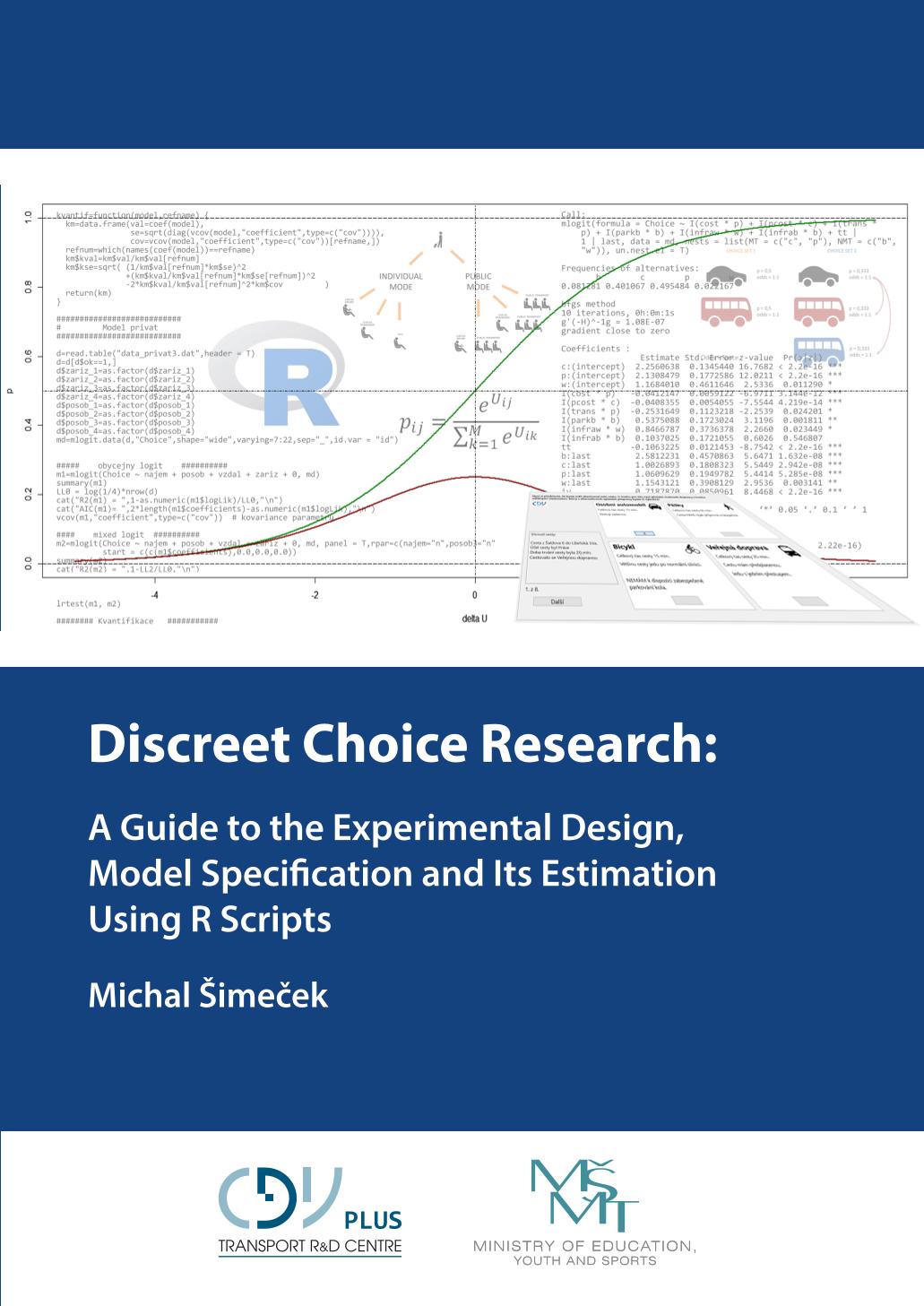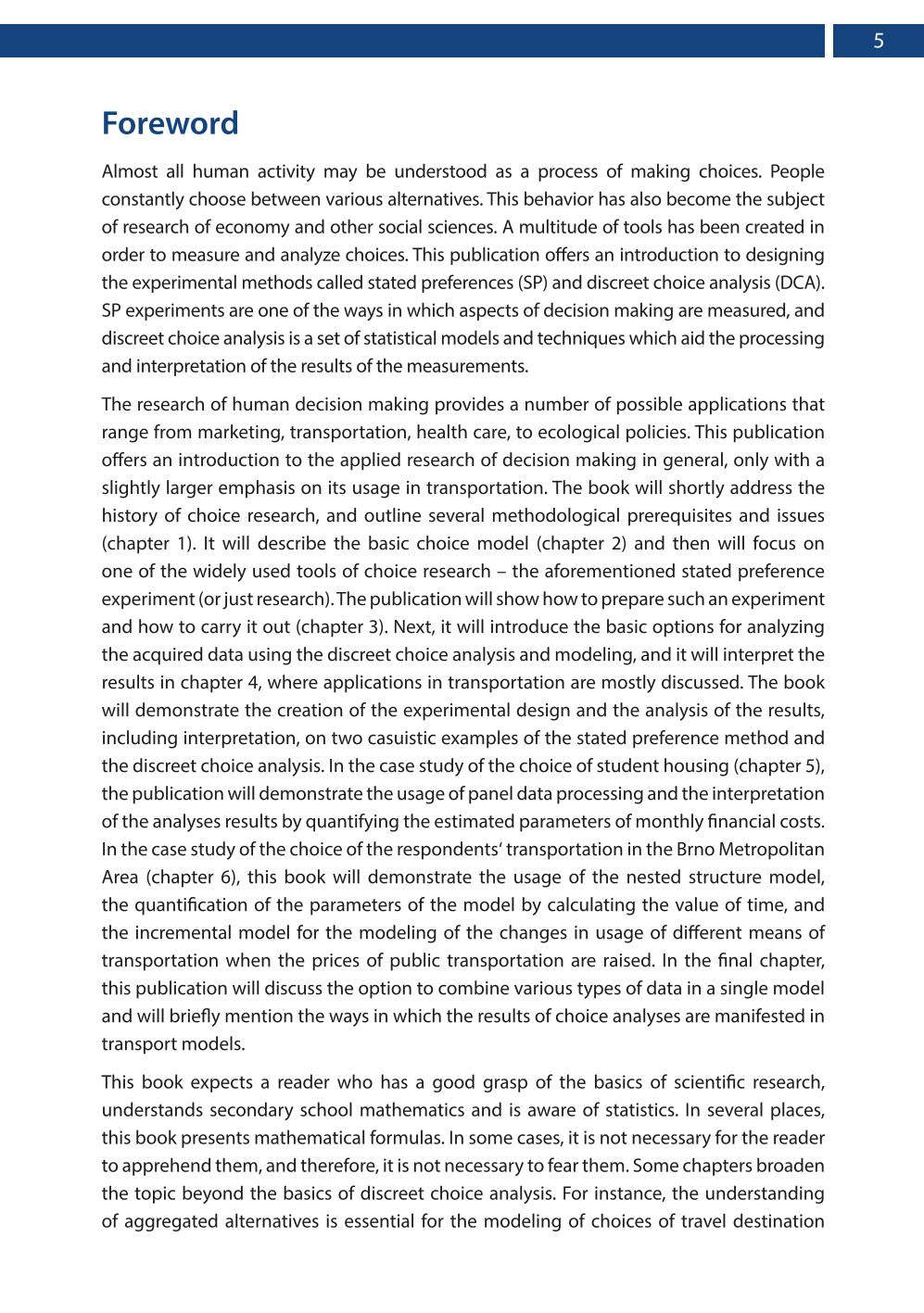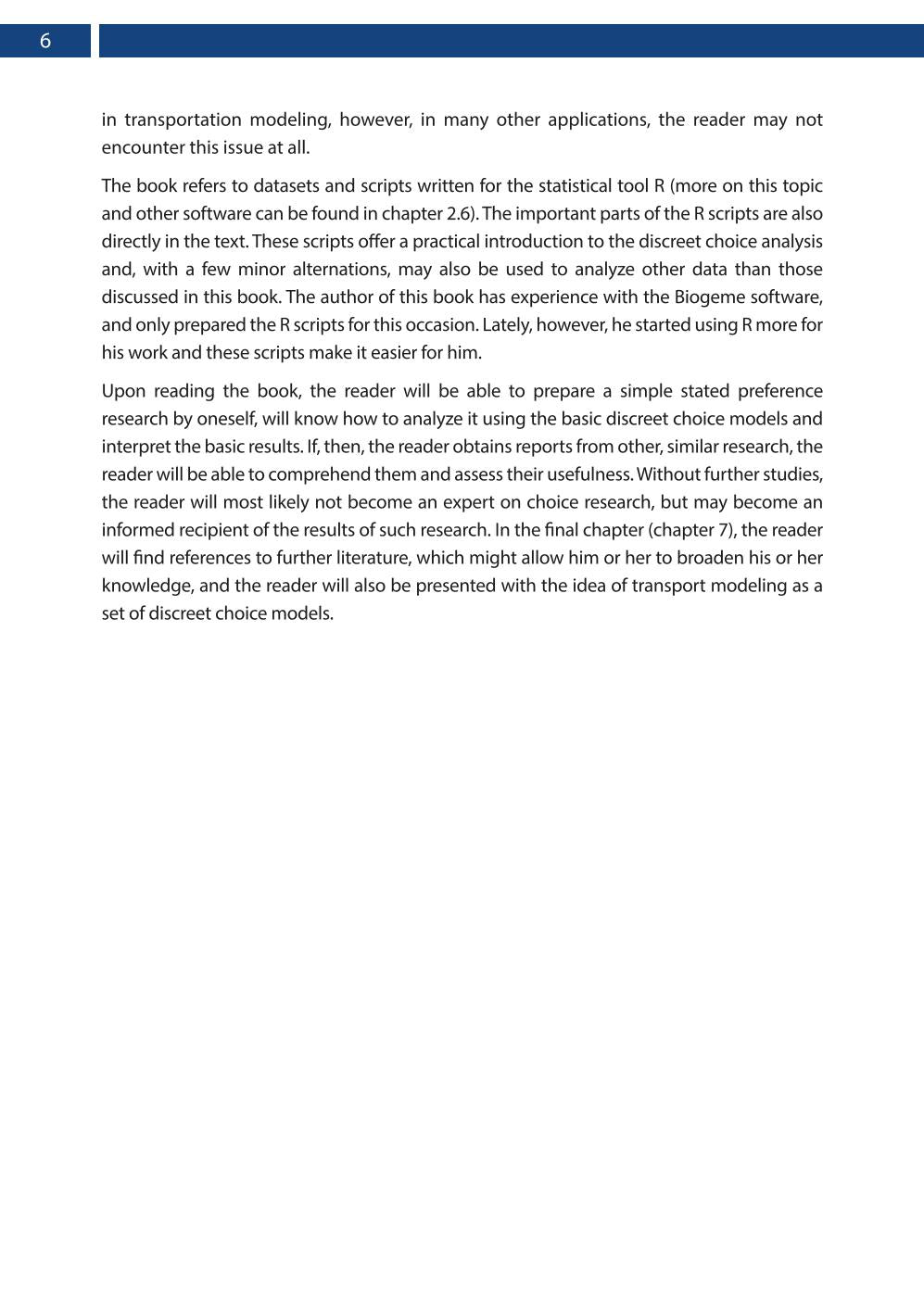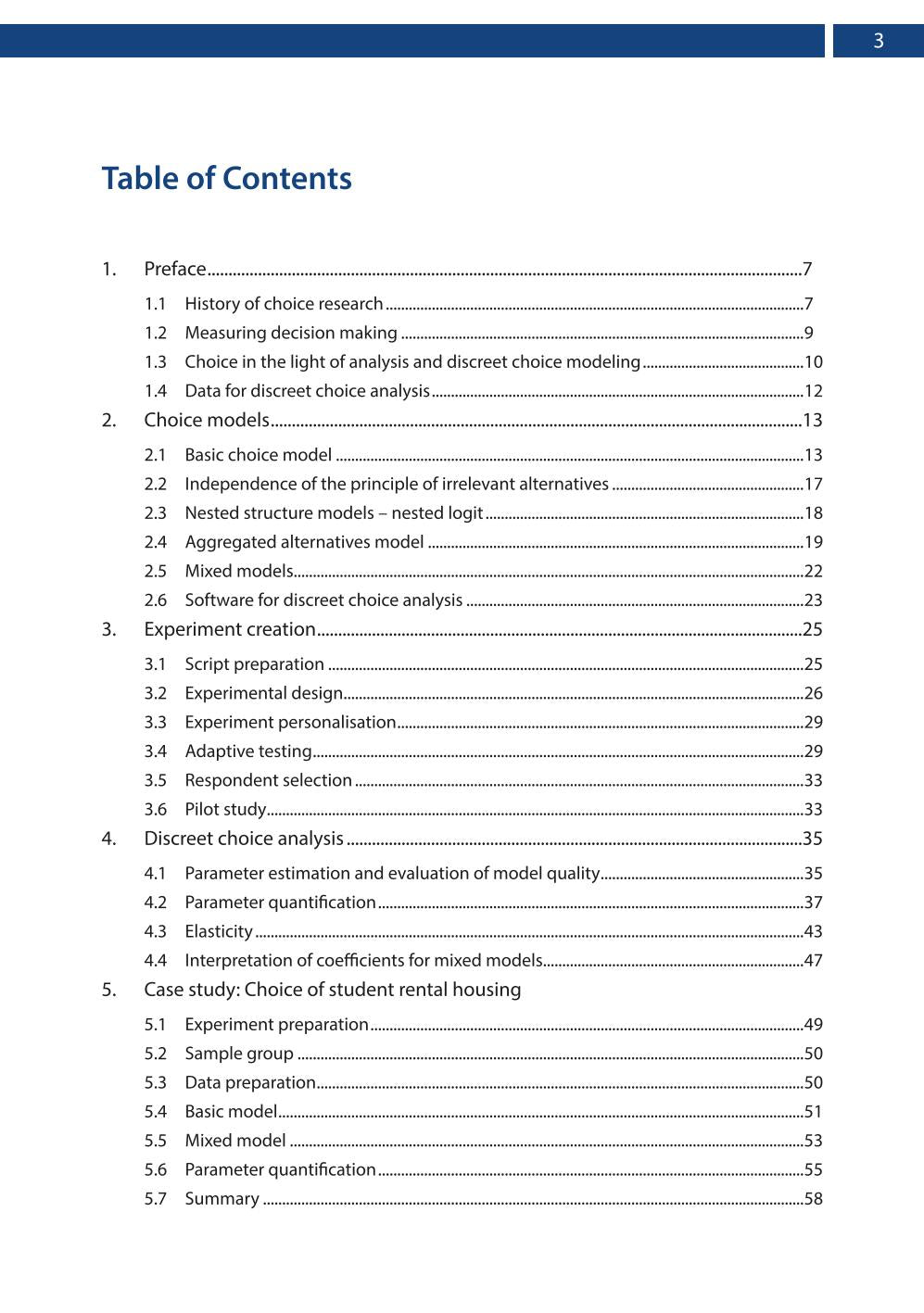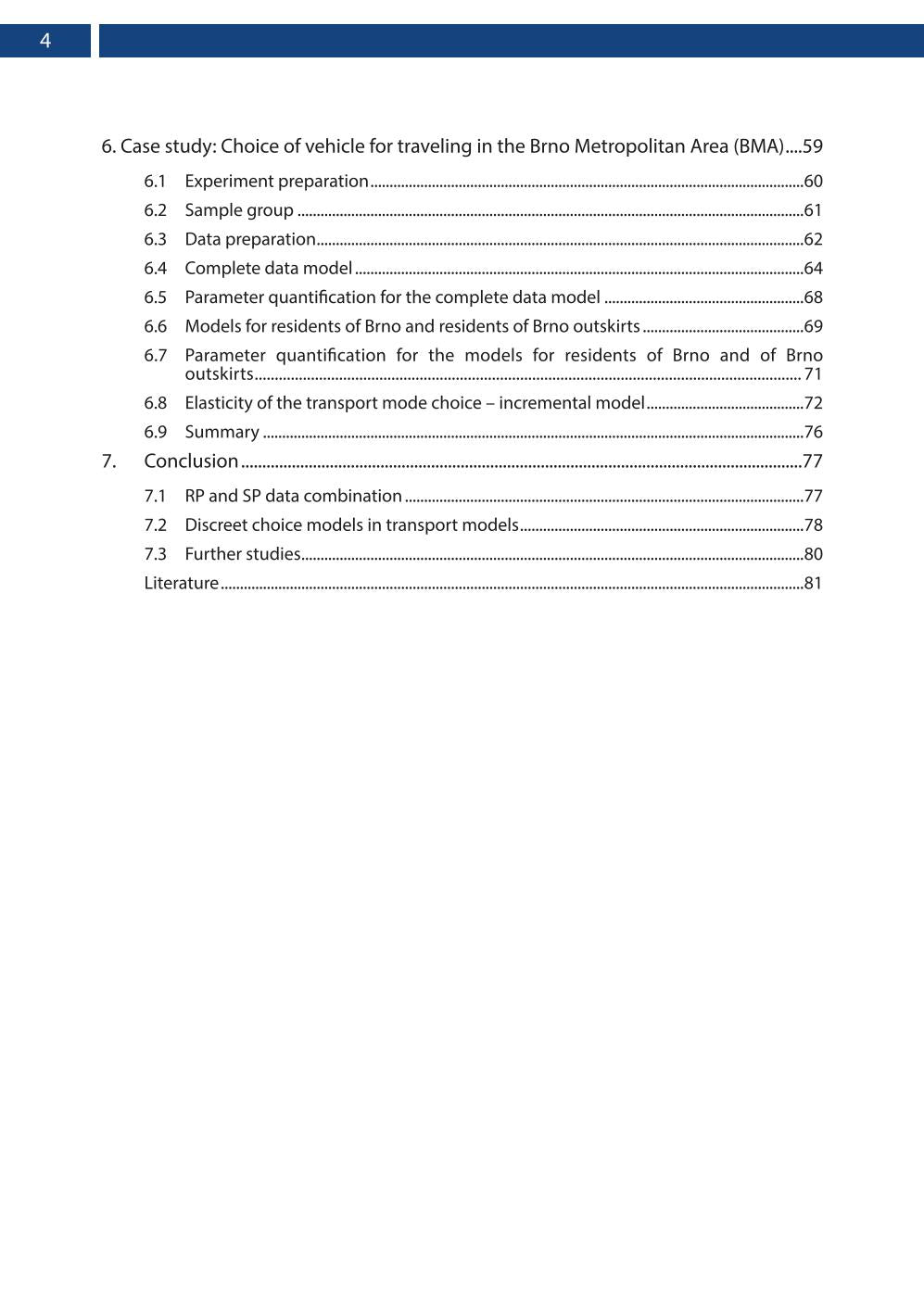E-book
Discreet Choice Research: a guide to experiment design, model specification and estimation with scripts for R
Discreet Choice Research: a guide to experiment design, model specification and estimation with scripts for R
Dostupnost vyzvednutí nebylo možné načíst
Decision-making research has applications in a wide range of fields, from marketing to healthcare or environmental science around the world. For example, it is required as part of feasibility studies for public investment in transport if it is co-financed by the European Union. The publication presents an introduction to applied decision-making research using stated preference experimental method and discrete choice analysis, focusing in particular on the use of these methods in transport research. The introduction briefly deals with the history of decision-making research and its methodological assumptions. It also introduces the basic model of decision making, the design of the stated preference experiment, and the subsequent data analysis. In two examples, the practical use of the expressed preference and discrete choice analysis method shows the design of the experiment and the analysis of the results in practice, including the interpretation of the results. The book works with freely accessible author's datasets and scripts written for statistical tool R. After reading the book, the reader will be able to prepare a simple research of expressed preferences, analyze it using basic discrete choice models, and interpret basic results.

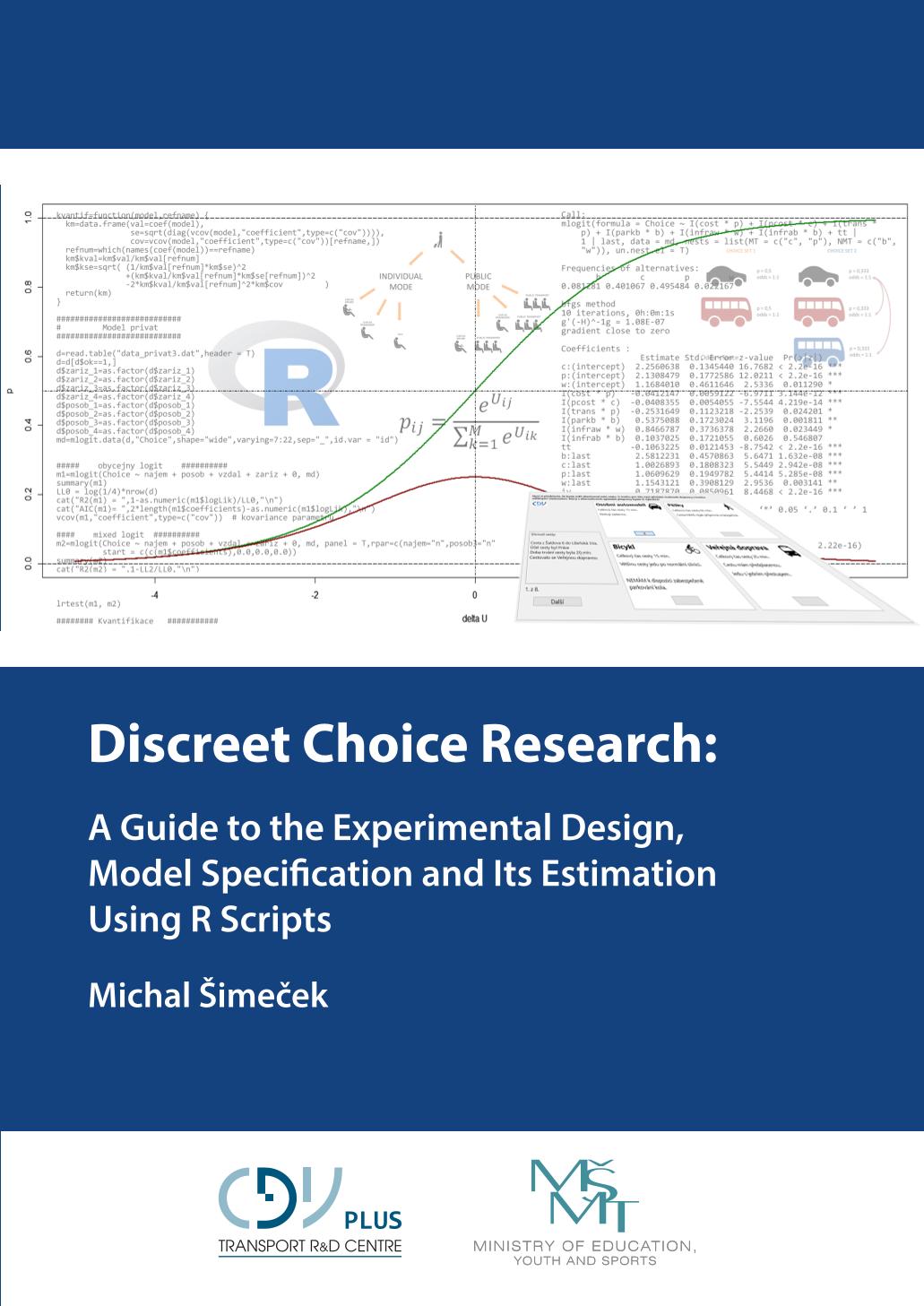
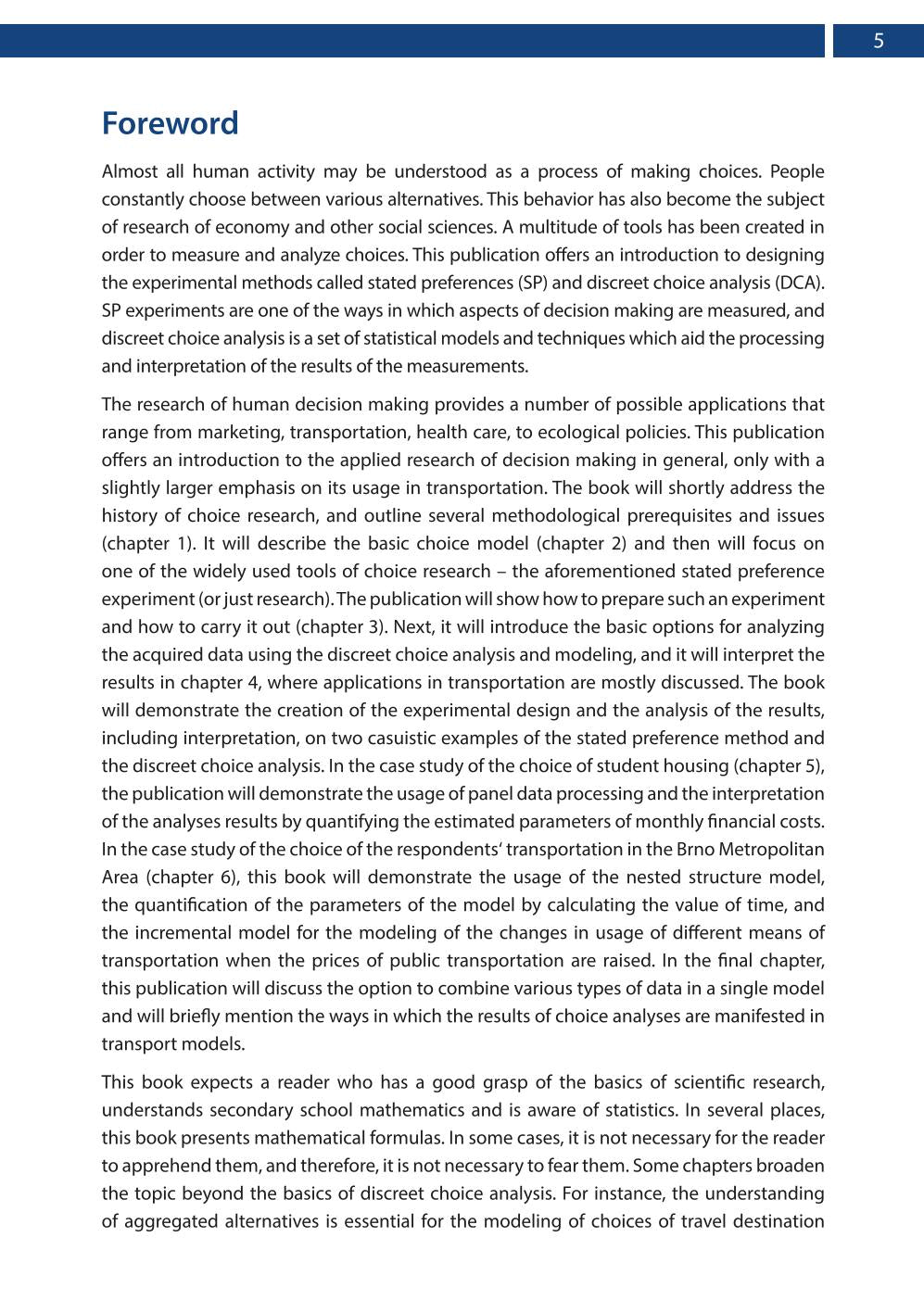
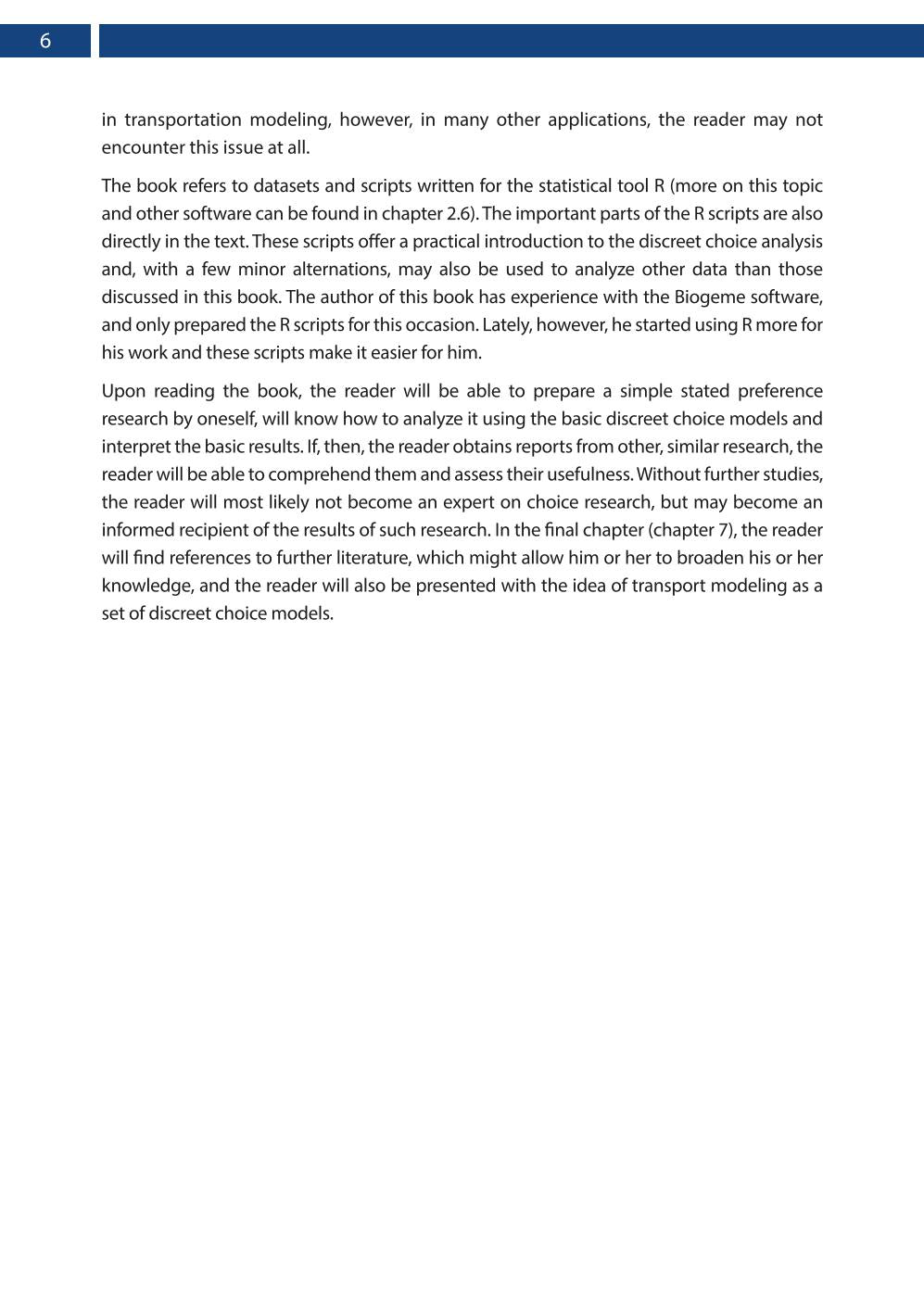
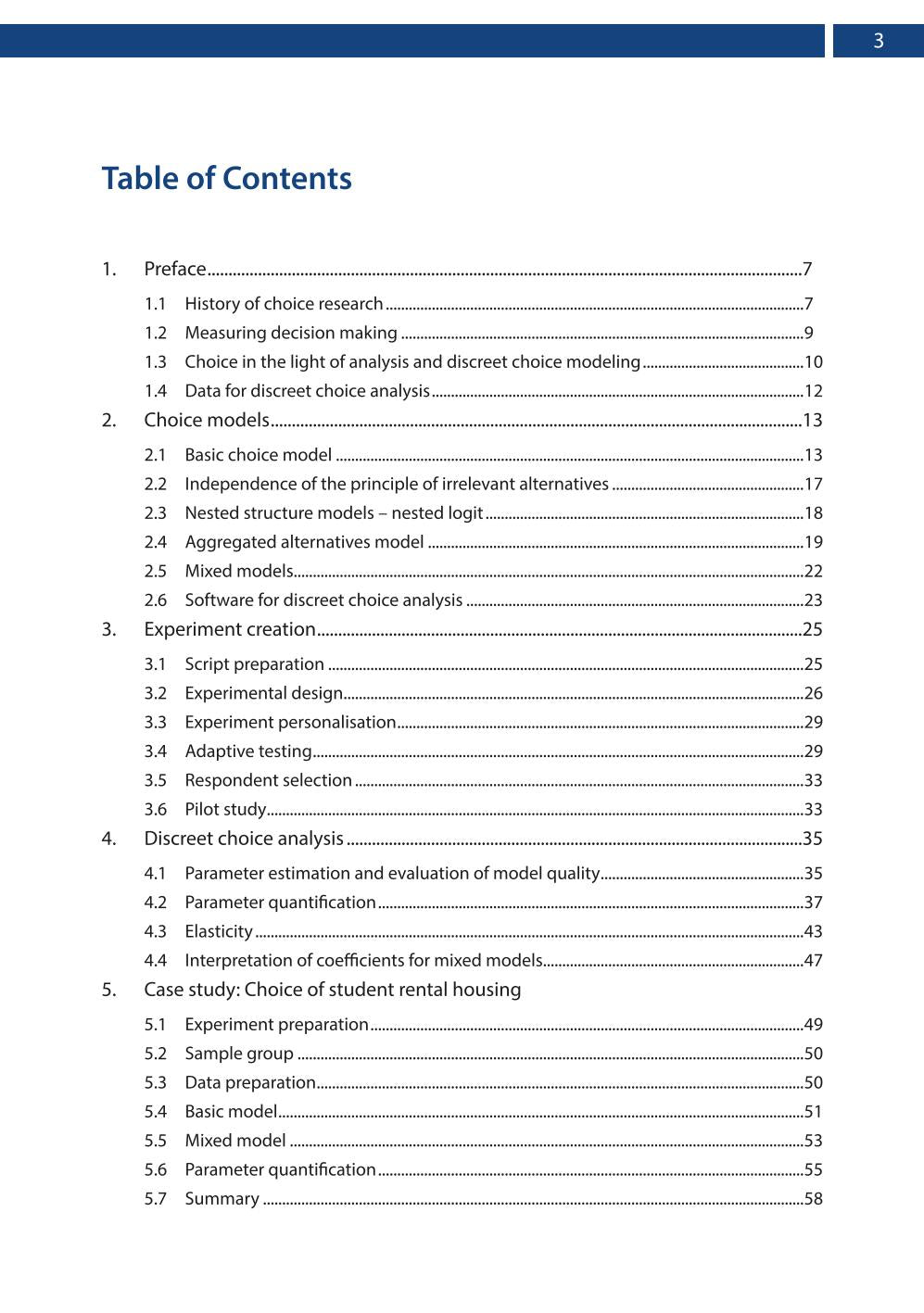
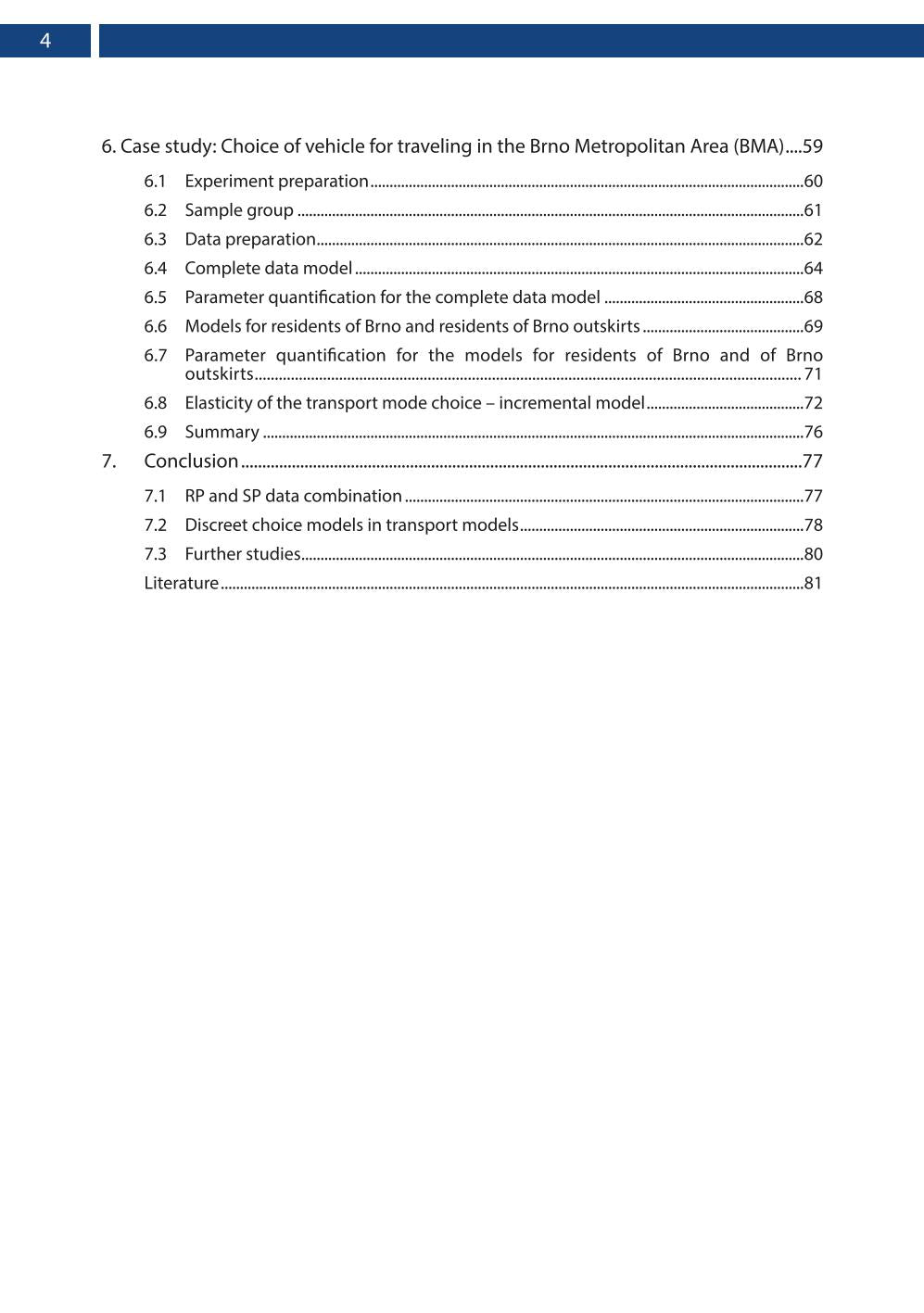
Detail
Autor
- Skládaná P.
- Skládaný P.
- Strnadová Z.
- Zaoral A.
- Dostál A.
Obsah
1. Preface
2. Choice models
2.1 Basic choice model
2.2 Independence of the principle of irrelevant alternatives
2.3 Nested structure models – nested logit
2.4 Aggregated alternatives model
2.5 Mixed models
2.6 Software for discreet choice analysis
3. Experiment creation
3.1 Script preparation
3.2 Experimental design
3.3 Experiment personalisation
3.4 Adaptive testing
3.5 Respondent selection
3.6 Pilot study
4. Discreet choice analysis
4.1 Parameter estimation and evaluation of model quality
4.2 Parameter quantification
4.3 Elasticity
4.4 Interpretation of coefficients for mixed models
5. Case study: Choice of student rental housing
5.1 Experiment preparation
5.2 Sample group
5.3 Data preparation
5.4 Basic model
5.5 Mixed model
5.6 Parameter quantification
5.7 Summary
6. Case study: Choice of vehicle for traveling in the Brno Metropolitan Area (BMA)
6.1 Experiment preparation
6.2 Sample group
6.3 Data preparation
6.4 Complete data model
6.5 Parameter quantification for the complete data model
6.6 Models for residents of Brno and residents of Brno outskirts
6.7 Parameter quantification for the models for residents of Brno and of Brno outskirts
6.8 Elasticity of the transport mode choice – incremental model
6.9 Summary
7. Conclusion
7.1 RP and SP data combination
7.2 Discreet choice models in transport models
7.3 Further studies
Dedikace
This methodology was co-financed by the state support of the Technology Agency of the Czech Republic within the ÉTA program, within the project TL02000194 Humanizing street space to improve the quality of life in cities and municipalities.
www.tacr.cz
Tiráž
ISBN 978-80-88074-76-2
Rok vydání
2020

